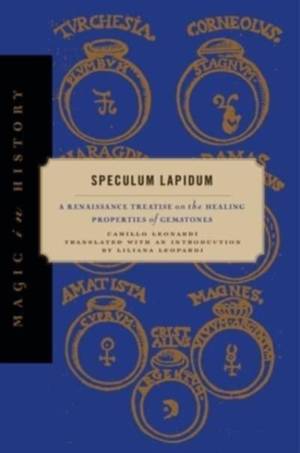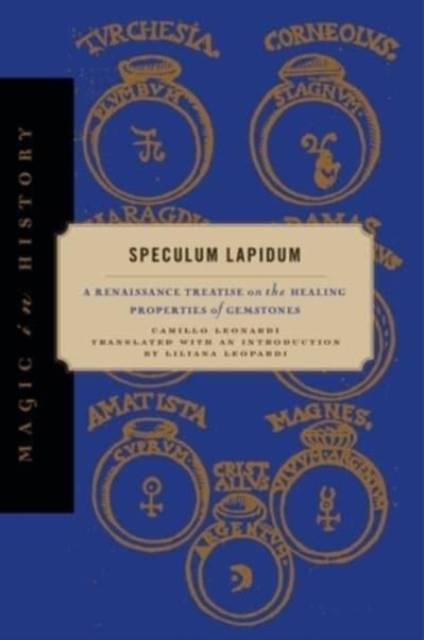
- Afhalen na 1 uur in een winkel met voorraad
- Gratis thuislevering in België vanaf € 30
- Ruim aanbod met 7 miljoen producten
- Afhalen na 1 uur in een winkel met voorraad
- Gratis thuislevering in België vanaf € 30
- Ruim aanbod met 7 miljoen producten
Omschrijving
In early modern Europe precious and semiprecious stones were valued not only for their beauty and rarity but also for their medical and magical properties. Lorenzo de' Medici, Philip II of Spain, and Popes Leo X and Clement VII were all treated with expensive potions incorporating ground gems such as rubies, diamonds, and emeralds. Medical and magical/astrological lapidaries, texts describing the stones' occult and medical qualities as well as their abilities to ward off demons and incantations, were essential resources for their use. First published in Venice in 1502, Camillo Leonardi's Speculum Lapidum is an encyclopedic summary of all classical and medieval sources of lithotherapy.
In describing the natural, manifest, and occult properties of precious and semiprecious stones as well as their graven images and applications, the Speculum Lapidum provides tremendous insight into the role that medical astrology and astral magic played in the life of an Italian court in the early modern period. Liliana Leopardi's English translation, complete with critical apparatuses, gives unprecedented access to this key text within the magical lapidary genre.
A vital addition to the existing canon of lapidaria in translation, Leopardi's work will be of special importance for students and scholars of the history of magic, medicine, religion, and Renaissance humanism, and it will fascinate anyone interested in the occult properties of precious and semiprecious stones.
Specificaties
Betrokkenen
- Auteur(s):
- Uitgeverij:
Inhoud
- Aantal bladzijden:
- 240
- Taal:
- Engels
- Reeks:
Eigenschappen
- Productcode (EAN):
- 9780271095394
- Verschijningsdatum:
- 29/08/2023
- Uitvoering:
- Hardcover
- Formaat:
- Genaaid
- Afmetingen:
- 164 mm x 241 mm
- Gewicht:
- 566 g

Alleen bij Standaard Boekhandel
Beoordelingen
We publiceren alleen reviews die voldoen aan de voorwaarden voor reviews. Bekijk onze voorwaarden voor reviews.











